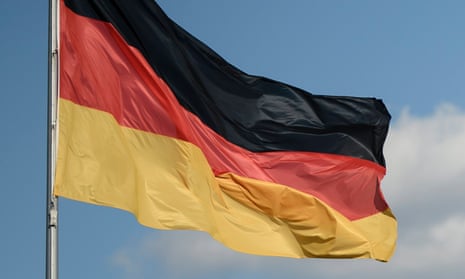A group of German authors, comedians and academics have added fuel to the flames of an increasingly bad-tempered culture war over language bias by calling for a fightback against “ridiculous linguistic constructions” designed to make German more gender-neutral.
In an open letter published by the Dortmund-based German Language Association, signatories including the philosopher Rüdiger Safranski, novelist Peter Schneider, comedian Dieter Hallervorden and the former head of the country’s domestic intelligence Hans-Georg Maassen, hit back against calls for more gender-neutral generic nouns.
In German, where nouns have either a male, female or neuter gender, words for mixed groups of people are traditionally based on the masculine form. If you are talking about a group of teachers, for example, you would say die Lehrer, not die Lehrerinnen.
Feminist linguists have made various proposals to make the language more inclusive, either by typographic trickery, such as LehrerInnen, Lehrer(innen) or Lehrer*innen, or by replacing them with nouns that make the gender more invisible.
In recent years, such proposals have been picked up by a number of academic institutions and municipal authorities: since January this year, officials in the city of Hanover no longer use the generic noun Lehrer in their correspondence, but the more neutral Lehrende, or “teaching ones”.
The protest letter, headed “An end to gender nonsense!” and published shortly before International Women’s Day, argues that the distribution of gender to generic nouns in German is too arbitrary for there to be a systemic sexist bias. In German, lions are male while giraffes are female and horses neuter, the letter’s authors argue. “And no one has been bothered by the fact that everything feminine has for 1,000 years been based on the [neuter] word das Weib.”
Further, the signatories dispute that masculine generic pronouns discourage women from entering certain professions: the fact that Germany’s constitution has 13 mentions of the “chancellor” in its masculine form “did not prevent the repeated rise of Angela Merkel to the post of chancellor”.
The German authors’ reactionary call to arms contrasts markedly with France’s Académie Française recently abandoning its long-held resistance to the feminisation of job titles.
Unlike France, Germany has no official central body tasked with arbitrating on linguistic matters: while Dortmund’s German Language Association boasts over 36,000 members, it is only one of several institutions that try to set standards on grammar and spelling.
The association, which publishes an index of anglicisms that have entered the German language alongside German-language alternatives, has gained an increasingly conservative profile in recent years, leading one critic to dub it “Pegida for linguists”.
